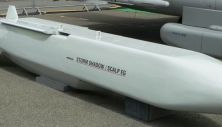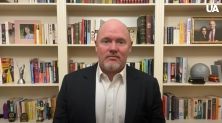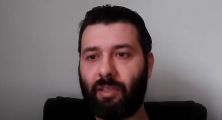How will Washington’s policy towards Ukraine change in the near future? What to expect from autumn? How does Kyiv break the Kremlin’s plans?
These questions are answered by Kurt Volker, US Special Representative for Ukraine (2017-2019), Executive Director of The McCain Institute for International Leadership (2012-2019) and US Ambassador to NATO (2008-2009), who Henry Keen interviewed for UATV English channel.
— Does America have any strategic victory plan over Russia? Or at least any plan at all? Is it okay for the United States just to keep fearing the escalation instead of wanting actual victory over the adversary?
— Well, you put your finger exactly on it. The Senate demanded, and the Congress demanded such a report on what the strategy is, because they see that there is no strategy. We have a tendency to provide a lot of aid, a lot of support, but not enough. We put restrictions on how it’s used. It is sometimes slow in getting delivered. It is all done as just enough, but not enough. And that’s why the Congress demanded such a report. There hasn’t been a strategy since then either. This is, as you say, caused by the fear of escalation.
There’s a fear that Russia might use a nuclear weapon. The war might widen. They could do things elsewhere in the world, in Africa or the Middle east.
So that is preventing Washington from really having a strategy of defeating Russian forces in Ukraine, which is what we need.
— Russia does it anyway. Lieutenant Colonel of the British Army Glenn Grant says that the day Russia stops waiving the nuclear gavel and tries to use it as the last day of Russia. Do you believe this is the case?
— Yeah, I think that that’s exactly right. Every time there is some event where Ukraine is doing well, Russia rolls out the nuclear threat. And they’re hoping that the West will respond to that and both back down itself and urge the Ukrainians to back down. It is a pretty consistent pattern that we see. I think we have to believe more in strength and deterrence as a way to prevent Russia from doing things.
It shouldn’t be about our backing down and being self deterred. It should be about having a position of strength where Russia knows there will be consequences if it takes certain actions.
Strategic nuclear deterrence still works perfectly well. We need to do the same at a tactical level as well, saying that any tactical use of any nuclear weapon is completely unacceptable and will be met with a devastating response.
— What do you think about the situation in Kursk, what America think of that?
— So what I think would make a difference for a US administration would be seeing a way where Ukraine can actually win, where Ukraine establishes a dominant position. And some of the things we’ve seen in the last few weeks are encouraging. I would say the successful strikes in Crimea against air defense systems, against Sevastopol, forcing the Russian Navy to withdraw from Crimea, eventually cutting off Russian forces that are in Crimea, having territory inside Russia as a bargaining chip.
These are all things that put Ukraine into a stronger position that may give some encouragement to the US administration to believe that you can create a stronger position for Ukraine, and do so without risking major escalation by Russia.
— Right. Donald Trump or Kamala Harris, what will change for Ukraine?
— Well, it’s interesting. If it’s President Harris, then I think you’ll see a continuation of the Biden approach, which has been a tremendous amount of support for Ukraine but with a lot of limitations, restrictions, and without a plan for victory.
I think if it is President Trump, you’re likely to see a desire to rebuild a position of strength for the West and for Ukraine with a combined pressure to get into a negotiation in order to create an end to the fighting.
I don’t know if you saw an article that former secretary of State Mike Pompeo and David Erman published about two weeks ago. I think that’s the best description that I’ve seen of what a Trump approach might look like.
— Well, you say that Trump’s desire to rebuild something, but desire is not the ability. Do you think he has the ability to do that?
— Oh, I think so. A lot of what has been lacking are things that are eminently doable, like lifting restrictions on the use of weapons that we provided, putting in place a lend-lease policy, such as we used to have in the Congress, that was never used. But putting that back in place so Ukraine can borrow even more resources than we’re providing through assistance.
Certainly driving down global energy prices through increased US production is something he wants to do regardless, because that’s something he wants to do for the United States. So I think a lot of those measures are, in fact, doable.
— All right, mister Walker, you put your trust more. Kamala Harris or Donald Trump, who you vote for?
— You know, I don’t think we have to make a choice in terms of what we do. We have to prepare for any eventuality. We shouldn’t make any assumptions about us policy.
We should instead be pushing for what the best policy should be. We should be preparing for whatever contingency might arise, creating the strongest position possible.
And that’s something that I would argue is true. Whether it’s you, Ukraine, whether it’s our European allies, whether it’s others in Europe like Moldova or Georgia, that’s the right approach to take. Don’t make assumptions. Do your own homework.
Read also: Ukraine’s incursion is “obvious humiliation” for Putin, Lithuania’s National Defence Minister says










